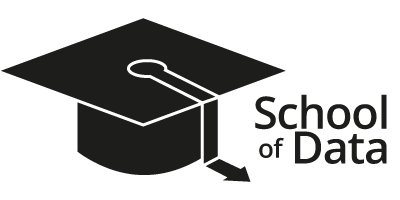The following post is by Rufus Pollock, Director and Co-Founder of the Open Knowledge Foundation, and Philip Schmidt, Co-Founder and Executive Director of Peer 2 Peer University.

Today, we’re announcing plans for a School of Data. The School will be a joint venture between the Open Knowledge Foundation and Peer 2 Peer University (P2PU). We also welcome other organizations who would like to participate — see below for more on this.
Why?
Data (open or otherwise) needs to be used, and to use data effectively requires certain skills.1
The explosive growth in data, especially open data, in recent years has meant that the demand for data skills — for data “wranglers”2 or “scientists” — has been growing rapidly. Moreover, these skills aren’t just important for banks, supermarkets or the next silicon valley start-up, they are also going to be cruicial in reserach, in journalism, and in civil society organizations (CSOs).
However, there is currently a significant shortfall of data “wranglers” to satisfy this growing demand, especially in civil society organisations — McKinsey expects a skills shortage in data expertise to reach 50-60% by 2018 in the US alone.3
Most formal training for data skills still takes place as part of formal statistics or mathematics programmes. It will be years before data specialist degree paths become broadly available and accepted, and even then, time-intensive degree courses may not be the right option for journalists, activists, or computer programmers who just need to add data skills to their existing expertise.
What is needed are flexible, on-demand, shorter learning options for people who are actively working in areas that benefit from data skills, particularly those who may have already left formal education programmes.
What?
To address this growing demand, the Open Knowledge Foundation and P2PU are collaborating to create the School of Data.
The School of Data will adopt the successful peer-to-peer learning model established by P2PU and Mozilla in their ‘School of Webcraft’ partnership. Learners will progress by taking part in ‘learning challenges’ – series of structured, achievable tasks, designed to promote collaborative and project-based learning.
As learners gain skills, their achievements will be rewarded through assessments which lead to badges. Community support and on-demand mentoring will also be available for those who need it.
So What Next?
In order to get the School of Data up and running, the next challenges are:
- To create a series of learning challenges for a Data Wrangling 101 course. Developing Data wranglers will learn to find, retrieve, clean, manipulate, analyze, and represent different types of data.
-
To recruit community leaders to act as ‘mentors’, providing community support and on-demand mentoring for those who need it.
-
To curate, update and extend the existing manuals and reference materials, e.g. the Open Data Handbook and the Data Patterns Handbook etc.
-
To design and implement assessments which evaluate achievements. Badges can then be issued which recognize the relevant skills and competencies.
-
To openly license all education content (challenges, manuals, references and materials) so that anyone can use, modify and re-use it, including instructors and learners in formal education.
-
Get the word out! Promote Data Wrangling 101 to potential participants.
Get Involved!
At this stage, we are seeking volunteers to help us develop the project. Whether you would like to design educational materials, construct learning challenges, donate money or mentor on the course, we’d love to hear from you! Equally, if you are part of an organisation which would like to join with the Open Knowledge Foundation and P2PU to collaborate on the School of Data, please do get in touch.
You can register your interest using the form below:
- For more on this topic, see these earlier posts: https://blog.okfn.org/2011/10/31/scaling-the-open-data-ecosystem/ and https://blog.okfn.org/2011/09/15/open-data-a-means-to-an-end-not-an-end-in-itself/ ↩
- Because this field is so new, terminology is still evolving. A ‘data wrangler’ is to ‘data’ what a ‘coder’ is to ‘code’. It is someone with the ability to find, retrieve, clean, manipulate, analyze, and represent different data. See https://blog.okfn.org/2011/02/11/as-coder-is-for-code-x-is-for-data/ for more on this topic. ↩
- McKinsey Global Institute, 2011. Big data: The next frontier for innovation, competition, and productivity, p.11. ↩









This is a great initiative. i was just writing the Open Data movement needed to include a prgoramme to train ‘lay people’ to understand and make use of available data, be important to take the teaching to people, make it mobile rather than require students to come to a central point.